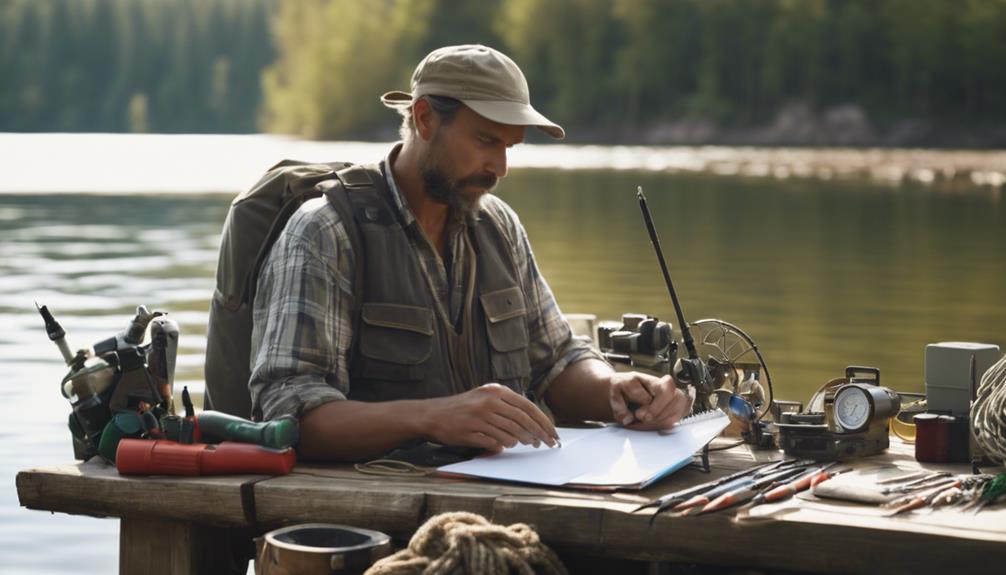Fly fishing is more than just a hobby; it’s an art form that requires skill, patience, and a deep understanding of aquatic ecosystems. For those looking to elevate their fishing experience, guided fly fishing offers the perfect opportunity. In this comprehensive guide, we will explore the ins and outs of guided fly fishing, its benefits, and what you need to know to get started. Whether you are a novice or an experienced angler, this guide will help you navigate the waters of guided fly fishing.
What is Guided Fly Fishing? Understanding the Concept
Guided fly fishing involves hiring a professional fishing guide who possesses extensive knowledge of local waters, fish species, and effective fishing techniques. This service is designed to enhance your fly fishing experience by providing expert advice, equipment, and support. A guide will not only help you select the right flies and tackle but also teach you essential casting techniques, local regulations, and the best fishing spots. By opting for guided fly fishing, you can significantly increase your chances of landing that trophy fish while enjoying a more rewarding experience on the water.
The Benefits of Choosing Guided Fly Fishing
One of the primary advantages of guided fly fishing is the access to expert knowledge. Experienced guides know the best times and places to fish, as well as the most effective techniques for catching specific species. This insider information can make a significant difference, particularly for beginners who may feel overwhelmed by the myriad of choices in gear, flies, and locations. Additionally, guided fly fishing offers a safe and supportive environment where you can learn and grow as an angler, all while enjoying the stunning natural beauty of your fishing destination.
Essential Gear for Guided Fly Fishing: What You Need
When participating in guided fly fishing, it’s essential to have the right gear. While many guides provide the necessary equipment, you may still want to invest in some personal items to enhance your comfort and performance. Essential gear includes a quality fly rod and reel, a variety of flies suited for your target species, and a fly box to keep them organized. Other essential items include polarized sunglasses, a fishing vest or pack for carrying supplies, and appropriate clothing for the weather conditions. Don’t forget to bring sunscreen and insect repellent, as spending hours outdoors can expose you to harmful UV rays and pesky bugs.
Choosing the Right Fishing Guide: Factors to Consider
Selecting the right guide for your fly fishing experience is crucial for your success and enjoyment. Start by researching local guides and reading reviews from previous clients. Look for guides who specialize in the type of fishing you want to pursue, whether it’s freshwater or saltwater fly fishing. Pay attention to the guide’s communication style and willingness to adapt to your skill level. A good guide should be patient, knowledgeable, and enthusiastic about sharing their passion for fishing. Don’t hesitate to reach out and ask questions before making your choice; this will help ensure you find the perfect match for your guided fly fishing adventure.
What to Expect During a Guided Fly Fishing Trip
A typical guided fly fishing trip begins with a pre-trip briefing where your guide will explain the day’s plan, safety protocols, and fishing techniques. Depending on your experience level and preferences, the guide may provide hands-on instruction or simply offer advice as you fish. Expect to spend several hours on the water, learning the ropes, and honing your skills. Throughout the day, your guide will provide tips on casting, fly selection, and reading the water, helping you improve your technique and increase your chances of success. Remember to bring plenty of water and snacks to stay energized, as guided fly fishing can be both physically and mentally engaging.
Fly Fishing Techniques to Master with Your Guide
During your guided fly fishing experience, you will encounter various techniques that can help you become a more versatile angler. One essential technique is the roll cast, which is particularly useful when fishing in tight spaces or when you need to quickly cast without backcasting. Additionally, your guide may teach you how to present your fly effectively to mimic the natural behavior of insects. Understanding the importance of drag and how to manage it can also enhance your catch rate. By practicing these techniques under the guidance of an expert, you’ll leave your trip with newfound skills that will serve you well in future fishing endeavors.
Planning Your Guided Fly Fishing Adventure: Tips for Success
When planning your guided fly fishing trip, consider factors like the best fishing season, the location’s accessibility, and the species you wish to target. Research the region’s fishing regulations and any permits you may need. It’s also vital to communicate your preferences and expectations with your guide beforehand so they can tailor the trip to your needs. If you’re a beginner, don’t hesitate to express your desire for more instruction and guidance. For experienced anglers, consider discussing specific techniques or challenges you’d like to tackle during the trip. By planning ahead and maintaining open communication, you can ensure a successful guided fly fishing adventure.
Conclusion: Elevate Your Fishing Skills with Guided Fly Fishing
Guided fly fishing is an exceptional way to enhance your angling skills while enjoying the beauty of nature. With the support of experienced guides, you can learn valuable techniques, access prime fishing locations, and ultimately increase your chances of landing that elusive catch. Whether you are a beginner looking to get started or an experienced angler wanting to refine your skills, guided fly fishing offers something for everyone. So, pack your gear, book your guide, and get ready to embark on an unforgettable fishing adventure that could transform your approach to fly fishing forever. Happy fishing!
